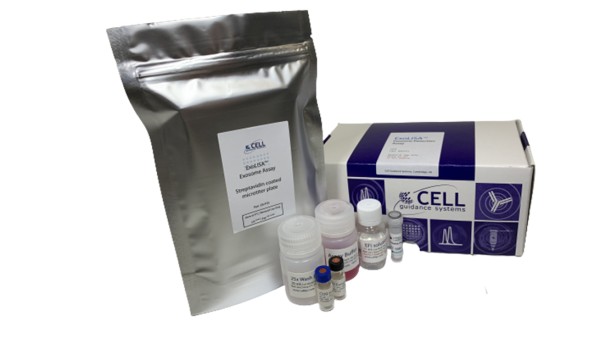ExoLISA CD9 Exosome Assay

ExoLISA CD9 Exosome Assay
#EX501Replaces old cat. no. EX101
ExoLISA™ assays are time-resolved immunofluorescence assays which have been developed to measure the abundance of CD9, CD63, or CD81 protein specifically associated with exosomes in biological fluids. The assay provides clear and consistent results in a simple 4-step fluorescent detection process. It is similar to an ELISA assay, but the target is detected directly with a fluorophore label without the need for sample lysis.
- Order number: EX501
Exosomes typically have multiple copies of tetraspanin facing towards the attachment surface and additional marker molecules available for detection. Based on this property, the assay consists of a biotinylated monoclonal antibody bound to a streptavidin-coated plate, which captures protein present on the surface of exosomes. Subsequently, an identical monoclonal antibody is used for detection. This principle means that only proteins present in multiple-component structures, such as exosomes, are detected and non-specific binding and background signal is greatly reduced.
Using a fluoroscent chelate which exhibits a large Stokes shift (290nm), a very narrow (10nm bandwidth) emission spectra at 615nm and with no overlap between excitation and emission spectra, provides high levels of sensitivity for the assay and is able to detect small changes in the abundance of the target tetraspanin protein. Additionally, the long fluorescence lifetimes allows use of microsecond time-resolved fluorescence (TRF) measurements, which reduces the observed background signals.
For additional information about the product, please visit the manufacturer's website.
| shipping method: | blue ice packs |
| storage temperature: | 2-8° |


















